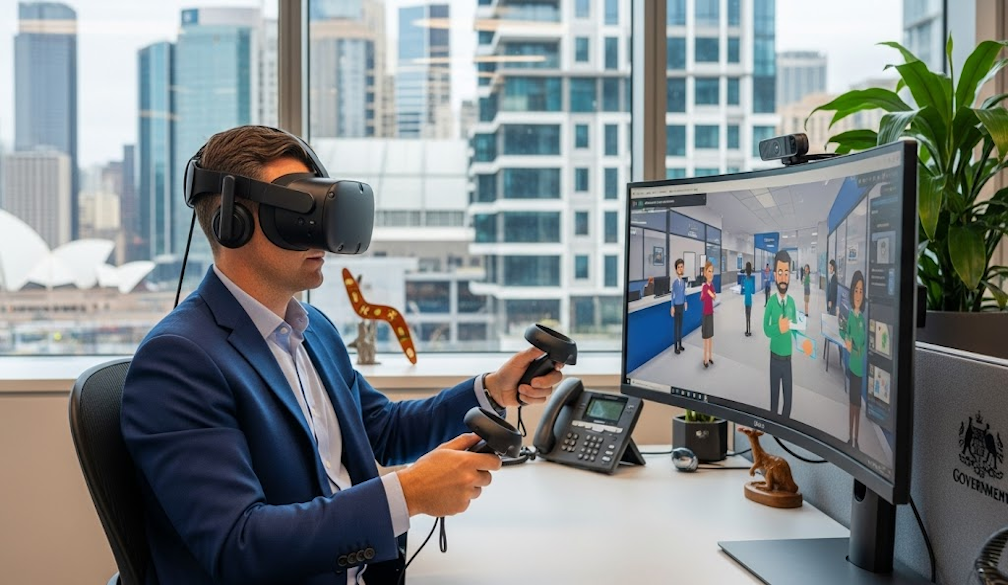Revolutionising Public Service Training Across Australia

Australia's public service, employing over 2 million people across federal, state, and local government levels, faces increasing pressure to deliver exceptional service while managing complex citizen interactions. Government departments nationwide are discovering that courses on dealing with difficult customers through virtual reality can transform how public servants engage with the community.
Centrelink offices, often the frontline of government service delivery, have implemented comprehensive augmented reality ar and virtual reality vr training programs. Staff practice managing distressed individuals seeking emergency assistance, frustrated job seekers, and angry pensioners facing payment issues. The immersive nature of VR training builds empathy while developing practical skills.
The Australian Taxation Office's adoption of VR training yielded unexpected benefits. Call centre staff trained in VR showed 45% better resolution rates and received 60% fewer complaints. The ability to practice handling aggressive taxpayers or explaining complex policies in simple terms proved invaluable during tax season peaks.
Local councils face unique challenges in managing community expectations with limited resources. VR training helps council workers navigate heated planning disputes, rate increase objections, and infrastructure complaints. The Parramatta City Council reported that VR-trained staff resolved disputes 40% faster while maintaining better relationships with residents.
Border Force officials use VR to prepare for the diverse, high-stakes interactions inherent in immigration control. Officers practice identifying suspicious behaviour while maintaining respect and cultural sensitivity. The training has proven particularly valuable in helping staff manage their own stress while dealing with distressed asylum seekers or aggressive travellers.
The technology also addresses internal public service challenges. VR modules on managing workplace bullying, navigating bureaucratic conflicts, and handling performance conversations help create healthier public service cultures. This internal focus recognises that serving citizens effectively requires a supported, skilled workforce.
As public expectations for government services continue rising, departments investing in advanced training technologies are meeting the challenge. They're proving that modern public service isn't just about digital service delivery – it's about equipping public servants with skills to handle increasingly complex human interactions.

